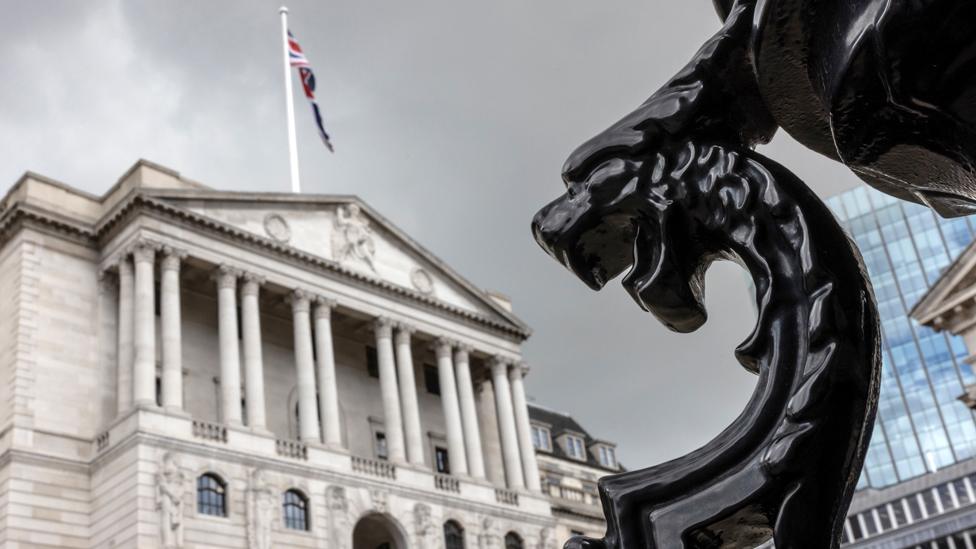When will interest rates go down?
- Published

Don't expect rates to fall any time soon, but they may not go up much more from here. That is what is indicated by the Bank of England's important new language today.
The words are as important as what it has done - raising rates for a 14th consecutive time. The Bank had picked up that some households and some in the financial markets were assuming that once inflation had tumbled to more normal levels, that interest rates too would fall.
By stating that it will "ensure that Bank Rate is sufficiently restrictive for sufficiently long", the Bank's Monetary Policy Committee is clearly indicating that rates could plateau above 5% across next year into 2025. However, it is also implicitly acknowledging that, at 5.25%, rates are now close to their peak in this cycle of 14 rises.
This mixed view reflects some mixed data. Today's quarter point rise and the fact that rates will stay high for some time is to temper inflationary pressure emerging from the jobs market, a less weak economy, and the service sector.
As the Bank concludes, "some of the risks of more persistent inflationary pressures have begun to crystallise".
But the indication rates might not need to go up much more from here reflects that unemployment has begun to rise a little, and there are also now signs of interest rate rises slowing the economy.
All of this makes the Bank's tightrope between trying to crush inflation and yet avoid a significant downturn, even more tricky.
Indeed, this year the economy is now forecast to avoid recession, with the economy growing in the second and third quarters. But for next year and 2025 the forecasts are notably weaker, to the point of stagnation in 2025. Growth of just 0.5% next year and 0.25% in 2025 means the shadow of recession remains.
The Bank is willing to tolerate an economy as weak as that over the next couple of years, so that inflation returns to its target of 2% and remains there.
Its message today is that interest rates above 5% are the new normal (as they were before the financial crisis of 2008) and Britain should again get used to that.
Related topics
- Published3 August 2023


